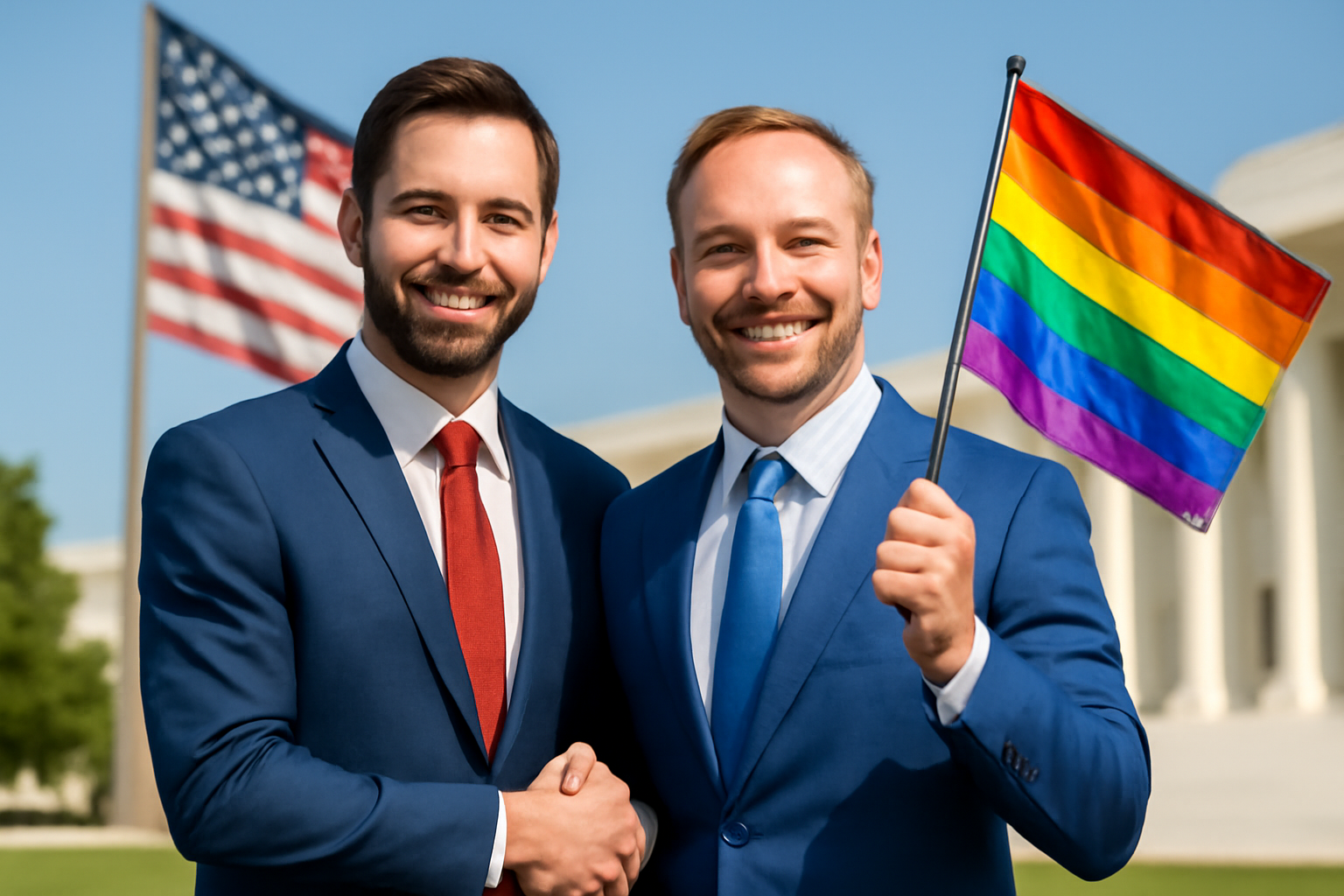
Nine states across the United States are currently witnessing efforts led by Republican lawmakers to challenge the landmark 2015 Supreme Court decision in Obergefell v. Hodges, which established marriage equality nationwide. This trend marks a shift in focus for state Republican legislators, who have predominantly concentrated on restricting transgender rights over the past few years.
In Idaho, Michigan, Montana, North Dakota, and South Dakota, Republican representatives have put forward resolutions urging the Supreme Court to reconsider and overturn the Obergefell decision. Notably, in Idaho and North Dakota, these resolutions have progressed through at least one chamber of the state legislature.
In addition to these efforts, four other states — Missouri, Oklahoma, Tennessee, and Texas — have seen the introduction of bills aimed at promoting traditional heterosexual marriages. Some of these proposals introduce a concept known as "covenant marriage," which is exclusively available to opposite-sex couples. The underlying goal, as stated by a bill sponsor in Oklahoma, is to create a legal disparity between heterosexual and same-sex marriages, thereby provoking a legal confrontation that might escalate to the Supreme Court, potentially resulting in the overturning of Obergefell.
Strategic Challenges and Potential Ramifications
The Supreme Court, which has experienced a significant ideological shift to the right since the Obergefell ruling, now includes two justices who have openly expressed their desire to revisit and possibly overturn the decision. The retirement and passing of Justices Ruth Bader Ginsburg, Anthony Kennedy, and Stephen Breyer, who were part of the majority in the Obergefell case, means that the remaining composition of the Court is less predictably supportive of marriage equality. Currently, it is uncertain whether there are sufficient votes to uphold marriage equality should a test case arise.
Furthermore, thirty-five states have constitutional amendments or statutes that still ban same-sex marriage. These could potentially be reactivated if the Supreme Court were to reverse Obergefell. However, the federal Respect for Marriage Act, passed in 2022, mandates that both state and federal governments must recognize same-sex marriages performed in states where they are legal, providing a layer of protection for existing marriages.
Community Advice and Preparation
Legal experts are advising the LGBTQ+ community to stay vigilant and prepare for a range of outcomes. Jenny Pizer, chief legal officer of Lambda Legal, emphasized the importance of proactive measures in an interview last month. "It’s prudent to foresee potential developments and ensure we are fully prepared," Pizer stated. "The key takeaway for individuals is to take steps to secure their relationships and family status. Don’t rely solely on speculative expert opinions; take concrete protective actions where possible."
While the Respect for Marriage Act offers some stability, the possibility of future legal challenges underscores the need for continued advocacy and support for marriage equality. LGBTQ+ individuals and allies are encouraged to remain informed about political developments and to participate in efforts that support and protect marriage rights.
Engagement in local and national advocacy can make a substantial difference in shaping the future of marriage equality. By staying informed and involved, individuals can contribute to a broader movement that seeks to uphold rights and ensure equality for all.
For continuous updates and insights into how political changes affect the LGBTQ+ community, subscribing to newsletters and participating in community discussions can be valuable resources. Staying connected with organizations and initiatives dedicated to LGBTQ+ rights ensures that individuals are not only informed but also empowered to take action.
Conclusion
The ongoing efforts by Republican lawmakers in these nine states to challenge marriage equality highlight the persistent political divides surrounding LGBTQ+ rights in the United States. As these initiatives unfold, it is crucial for the community and its allies to remain engaged, informed, and prepared to advocate for the preservation of marriage equality.
Related Posts
Triumphant Trans Woman Wins Legal Battle and Inspires Others to Stand Up for Their Rights
Breaking new ground: a landmark victory in transgender rights After battling in courtrooms and enduring endless challenges, Diana Portillo, a transgender woman, has secured a monumental victory in her decade-long fight against workplace discrimination. The result? Nearly $1 million awarded in a historic settlement. But this isn't just a win on paper—it represents a powerful precedent in combati [...]
Pride Month in Latin America: Protests and Demands for Equality
**Celebrating Pride and advocating LGBTQ+ rights in Latin America** Pride Month in Latin America was a lively mix where celebration met activism. Communities united, not just throwing a party but making a stand—demanding equality and pushing governments toward better protection and rights recognition. Throughout Latin America, pride events erupted in marches and cultural displays, each with a c [...]
Transgender Erasure Actions Implemented by National Park Service
```html Trump administration's impact on national park service and transgender recognition The Trump administration made notable moves in undermining transgender representation, which included directing agencies like National Park Service not include "T" and "Q" when they refered “LGBTQ” in any official communication. This move seems part a broader plan by this administration aimed at reducin [...]